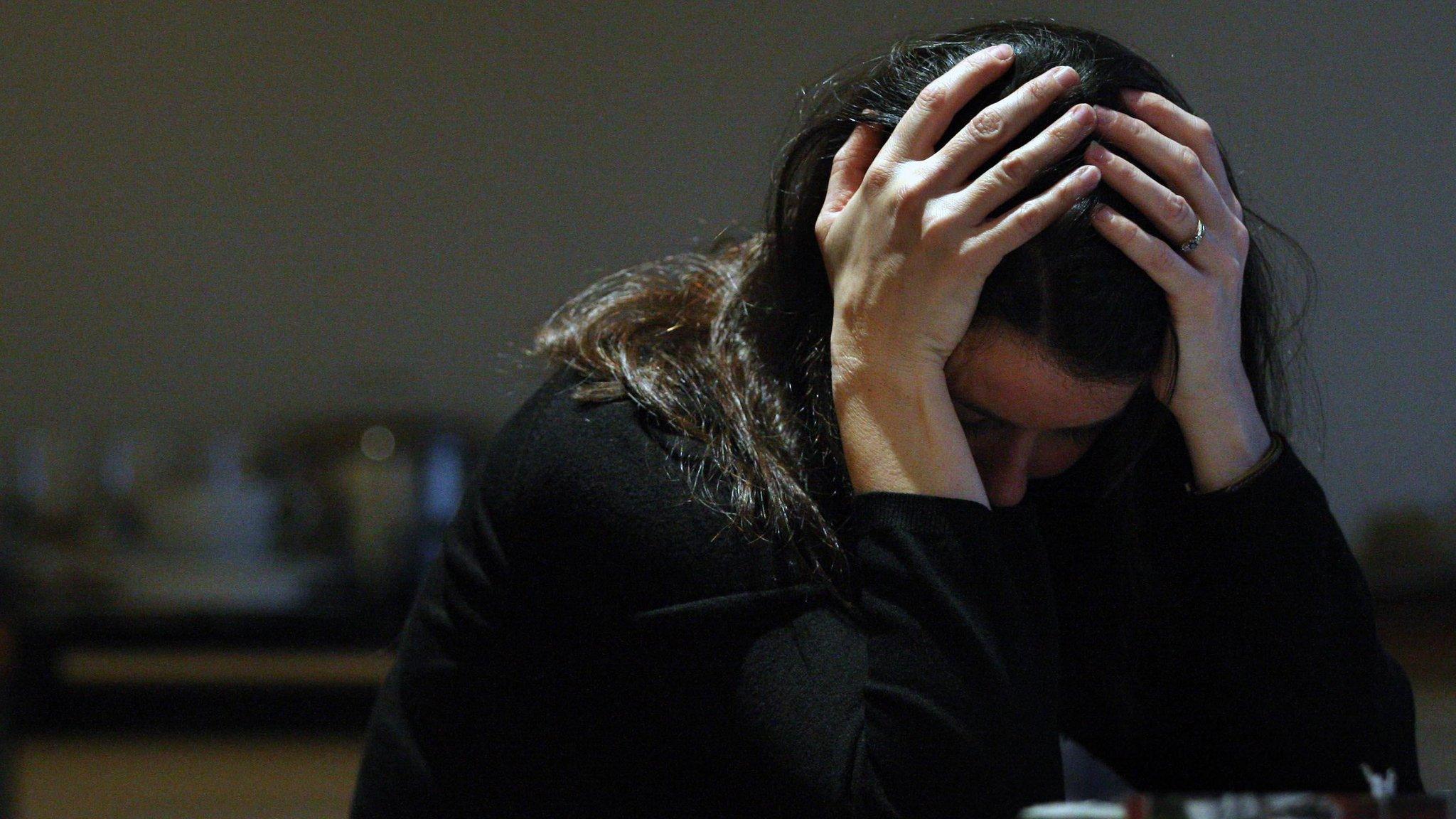Legal costs halt thousands of domestic violence cases
- Published

Domestic abuse victims in England have been unable to get emergency court orders stopping their abusers from harming them, an organisation has said.
The National Centre for Domestic Violence said 6,000 victims were denied free legal representation last year.
Legal Aid applicants for non-molestation orders are means tested and often told to pay towards the cost.
The government said it was making it easier for domestic violence victims to prove they needed Legal Aid.
Family home
The National Centre for Domestic Violence told BBC Radio 5 live Investigates that the problem arises when they appear to have money or assets of their own.
It said too many women were turned away because they appeared to own assets or savings that were actually under the control of their abusers.
Mark Groves, who is the company's chief executive said: "While many people think Legal Aid is free, it is not, you have to pay a means-tested contribution.
"Economic abuse victims who don't control their money may not have this [and] those who have fled the family home may not have the right documentation.
"If you own a house, you have to put down a cash deposit equal to the equity in that house, which could be hundreds of thousands," he explained.
Mum-of-two Alice, whose name has been changed to protect her identity, was granted legal aid to secure a non-molestation order after she told police about years of violence inflicted by her husband.
But after getting the injunction she said the Legal Aid Agency got back in touch to say she had not qualified for free legal representation and she was handed the bill.
"I got a letter saying the injunction would cost me £6,000," she said.
"I was in tears when they told me, it was a complete shock.
"The only way I'd be able to pay that money was to get a loan I couldn't afford, or to sell my house and move back in with my mum," she added.
Alice is now appealing against the decision but said if she had known from the outset she would have to pay she would not have proceeded.
She added: "If I was told that I'd have to pay £6,000 I'd never have gone through with the process, and I'd have had no choice in letting my abuser back into my life."
Financial abuse
Changes introduced under the Legal Aid, Sentencing and Punishment of Offenders Act 2012 removed most legal aid in the family courts except in cases of domestic violence.
But to secure free legal support, victims have to provide evidence of the abuse, as well as being subject to a means test on income and assets.
A spokesman for the Ministry of Justice said the government's aim was in fact to make it easier to obtain legal aid in such cases.
"This includes widening the evidence that can be submitted, ensuring most victims only have to provide evidence once during their case, and scrapping the overall time limit for submitting evidence," he said.
"The Legal Aid Agency also considers all evidence of financial abuse, allowing victims to clearly demonstrate where this has occurred."
Police and specialist services may refer domestic violence victims to The National Centre for Domestic Violence when they need emergency court orders to stop abuse.
The organisation's staff attempt to secure legal aid on the victim's behalf.
During 2017 it took 78,356 referrals from police and domestic violence groups in England but, of those, 6,295 victims did not proceed because they were ordered to contribute to the legal costs.
5 live Investigates is on BBC Radio 5 live, February at 11:00 GMT - catch up on BBC iPlayer Radio
Have you got something you want investigating? We want to hear from you. Email us., external